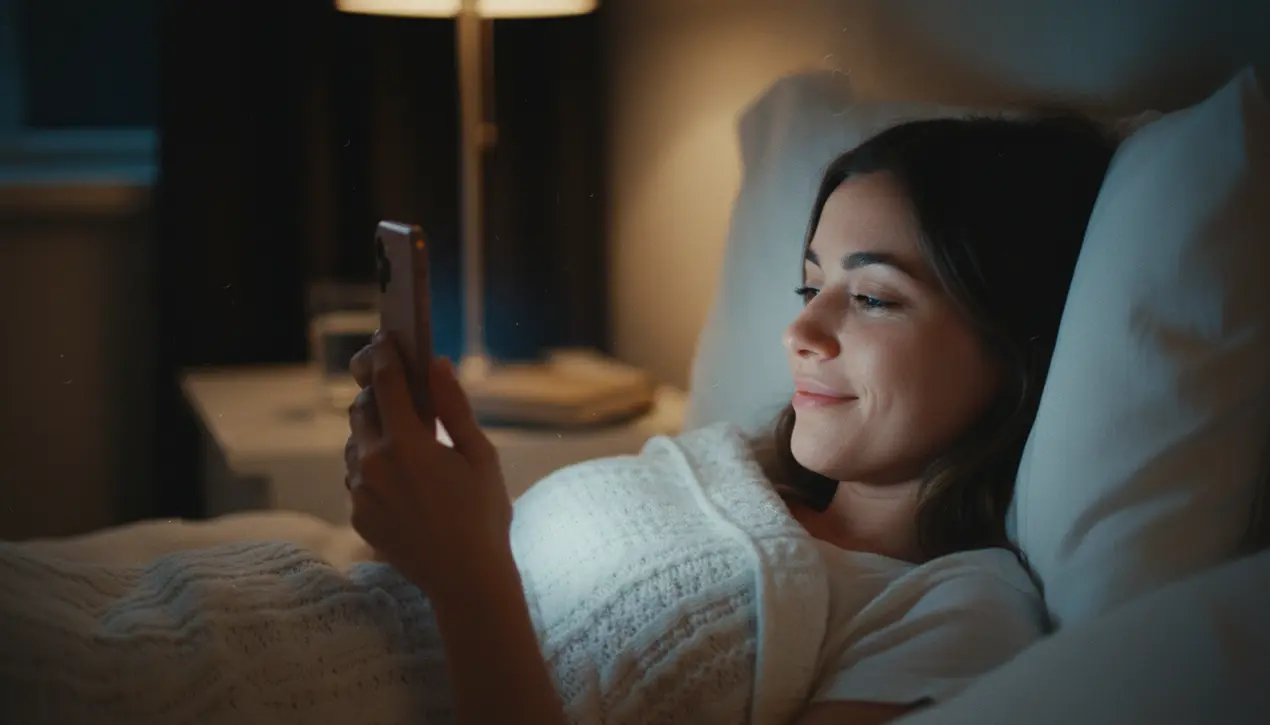
ScienceneuroscienceSleep and Consciousness
Study Suggests TikTok Before Bed May Not Harm Sleep.
LA
Laura Bennett
2 hours ago7 min read
Remember when you were a kid and the health advice about eggs swung wildly from one extreme to the other? One week they were a superfood, the next they were a direct threat to your longevity. It was a nutritional rollercoaster that left everyone confused, and frankly, that’s precisely where we find ourselves today with the great pre-bed screen time debate.A new study has entered the chat, suggesting that scrolling through TikTok before you drift off might not be the sleep-wrecking villain it's been made out to be, and it’s a finding that feels both liberating and deeply human. For years, the narrative has been monolithic and fear-based: the blue light from our devices suppresses melatonin, the endless scroll activates our brains, and the result is a generation of exhausted, sleep-deprived zombies.We’ve internalized this guilt, treating our phones like contraband in the bedroom, feeling a pang of failure every time we break the rule. But this new research, which I find fascinating from a sociological perspective, peels back the layers on our actual lived experiences.It asks whether the content itself, and our emotional relationship to it, might be more significant than the mere fact of the screen's glow. Think about it: a five-minute session watching calming baking videos or cute animal compilations might actually serve as a mental wind-down, a digital form of meditation that separates the stress of the day from the quiet of the night.Conversely, diving into a political debate or a work-related email chain on the same device is almost guaranteed to spike cortisol and ruin any chance of rest. The device is just the vessel; the cargo matters.I’ve spoken to dozens of people about their nighttime rituals, and the stories are never simple. One young teacher told me that ten minutes of mindless fashion hauls on TikTok is her signal to her brain that the workday is officially over—it’s a hard boundary.Another person, a freelance designer, said that the gentle, repetitive nature of certain ASMR or craft videos creates a rhythmic, almost lullaby-like effect that books, for him, never could. This isn't to dismiss the genuine science behind sleep hygiene, but to complicate it, to add the essential ingredient of individual psychology.The danger of the old, rigid advice is that it can create anxiety, and anxiety is arguably a far greater enemy of sleep than any pixel. Lying in bed worrying that you’ve ruined your sleep by checking your phone is probably more damaging than the act itself.This new study doesn’t give us a free pass for hours of late-night doomscrolling, but it does invite a more nuanced conversation. It asks us to be scientists of our own habits, to pay attention to how different types of content make us feel, and to curate our pre-sleep digital environment with the same intention we might curate a relaxing physical space.The ultimate insight here is about agency and self-awareness. Instead of a blanket prohibition, we're moving toward a more personalized understanding of wellness, one that acknowledges that for many in our hyper-connected world, our phones are not just tools of distraction but also tools of connection, comfort, and transition. The goal isn’t to live by a rigid set of external rules, but to learn the unique language of our own bodies and minds, and to find what truly allows us to turn off, in every sense of the word.
#sleep
#technology
#smartphones
#TikTok
#research
#health
#editorial picks news
Stay Informed. Act Smarter.
Get weekly highlights, major headlines, and expert insights — then put your knowledge to work in our live prediction markets.
Related News
Comments
Loading comments...
© 2025 Outpoll Service LTD. All rights reserved.